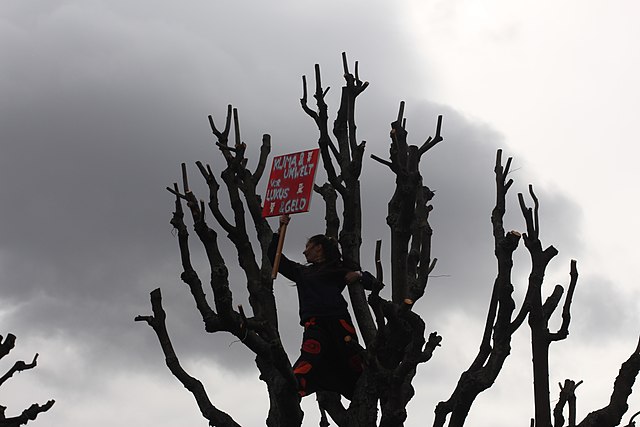A roundup of news, views and ideas from the mainstream press and the blogosphere. Click on the headline link to see the full article.
On climate change, younger Republicans now sound like Democrats
Kate Yoder, Salon
It’s now clear that elected Republican representatives are increasingly out of step with voters on climate change
—
Our overheating planet is splitting the Grand Old Party. Recent surveys suggest that Generation Z and Millennial Republicans care about the climate much more than their elders — and, get this, maybe as much as younger Democrats do.
It’s no secret that Republicans and Democrats aren’t on the same page when it comes to human-caused global warming. But a new poll suggests that Republicans and Democrats between 18 and 38 might as well be in the same party. Any red-vs-blue difference between them “virtually disappears,” according to the survey from Ipsos and Newsy. (It only asked about climate change, not the many other topics that split the two parties.)
This budding concern for the environment has some GOP strategists reportedly saying they’re seriously worried about losing voters to Democrats in 2020, and many are advising their party to adapt to the situation.
(September 10, 2019)
Someone phone Mr. Trump and tell him his 2nd and 3rd terms are in danger unless he jumps on this issue -BA
Covering Climate Now signs on over 170 news outlets
Mark Hertsgaard, Columbia Journalism Review
More than 170 news outlets from around the world with a combined audience of hundreds of millions of people have now signed up for Covering Climate Now, a project co-founded by CJR and The Nation aimed at strengthening the media’s focus on the climate crisis.
All outlets have committed to running a week’s worth of climate coverage in the lead-up to the United Nations Climate Action Summit in New York on Sept. 23. At that meeting, the world’s governments will submit plans to meet the Paris Agreement’s pledge to keep global temperature rise “well below” 2 degrees Celsius.
… Covering Climate Now now ranks as one of the most ambitious efforts ever to organize the world’s media around a single coverage topic. In addition to The Guardian—the lead media partner in Covering Climate Now—CJR and The Nation are joined by major newspapers, magazines, television and radio broadcasters, and global news and photo agencies in North and South America, Europe, Africa, and Asia.
(28 August 2019)
Asher Miller of Post Carbon Institute writes: “I believe there are now 250 media outlets who signed up to a week of focused climate coverage this week.”
Hello From the Year 2050. We Avoided the Worst of Climate Change — But Everything Is Different
Bill McKibben, TIME Magazine
Let’s imagine for a moment that we’ve reached the middle of the century. It’s 2050, and we have a moment to reflect—the climate fight remains the consuming battle of our age, but its most intense phase may be in our rearview mirror. And so we can look back to see how we might have managed to dramatically change our society and economy. We had no other choice.
There was a point after 2020 when we began to collectively realize a few basic things.
One, we weren’t getting out of this unscathed. Climate change, even in its early stages, had begun to hurt: watching a California city literally called Paradise turn into hell inside of two hours made it clear that all Americans were at risk. When you breathe wildfire smoke half the summer in your Silicon Valley fortress, or struggle to find insurance for your Florida beach house, doubt creeps in even for those who imagined they were immune.
Two, there were actually some solutions. By 2020, renewable energy was the cheapest way to generate electricity around the planet—in fact, the cheapest way there ever had been. The engineers had done their job, taking sun and wind from quirky backyard DIY projects to cutting-edge technology. Batteries had plummeted down the same cost curve as renewable energy, so the fact that the sun went down at night no longer mattered quite so much—you could store its rays to use later.
And the third realization? People began to understand that the biggest reason we weren’t making full, fast use of these new technologies was the political power of the fossil-fuel industry.
(September 12, 2019)
This is the sort of article that only we and a few others would publish a few years ago. Now it’s in TIME Magaine! -BA
Photo: The school strike for climate (FridaysForFuture) on Heldenplatz in Vienna (Austria) on March 15 2019. By Jean-Frédéric. https://commons.wikimedia.org/wiki/File:School_strike_for_climate_in_Vienna,_Austria_-_March_15_2019_-_30.jpg





